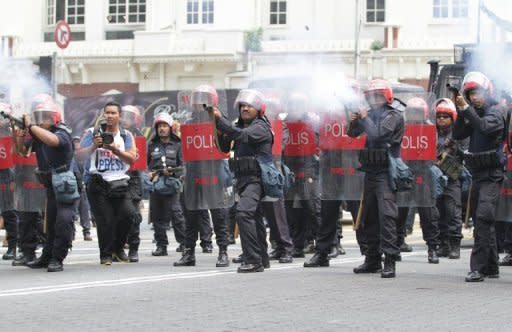Malaysia security laws must uphold rights: Ban
UN chief Ban Ki-moon on Thursday urged Malaysia to observe international human rights standards when formulating new laws to replace a tough security act that is marked for abolition. Prime Minister Najib Razak last year said he would replace Malaysia's Internal Security Act (ISA), which allows detention without trial and has been widely criticised for decades as a tool to suppress dissent. "I hope the government will ensure that the replacement laws will be in full compliance with international human rights standards," the UN secretary-general said in a speech in the Malaysian capital Kuala Lumpur before meeting Najib. Najib has been scrapping or amending a range of decades-old laws criticised as oppressive and outdated in an attempt to win back voters, who dealt the government its worst election results ever in 2008. Najib has promised to unveil what he says will be softer replacement laws for the ISA in parliament, possibly next month. The ISA has been mainly used to detain terror suspects but also a blogger and other dissidents in recent years. A Malaysian government spokesman said laws like ISA would be replaced "with modern, progressive counter-terrorism legislation modelled on international best-practice and designed to protect the... rights of all Malaysians." While the move has been hailed by rights groups as a step in the right direction, activists and the political opposition remain wary, warning that the proof of Najib's sincerity will be seen in the content of the replacement laws. Suspicions over Najib's sincerity were fuelled in November when, two months after his ISA promise, the government introduced a public assembly law that includes an outright ban on street protests, outraging rights groups. Ban also urged the Malaysian government to ensure that an electoral reform effort leads to a "truly transparent and credible system". Malaysian police crushed a July rally in Kuala Lumpur by thousands of protesters demanding electoral reform. The current system is criticised as being slanted in the ruling party's favour. The heavy-handed police response prompted widespread criticism of Najib, who later formed a parliamentary committee to study reforms. Ban said the committee's final recommendations should "take into account all legitimate concerns expressed by relevant stakeholders". Najib must call elections by April 2013 but is widely expected to do so this year. His ruling coalition has ruled Malaysia since independence from Britain in 1957.



